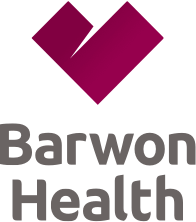Exercise to help beat cancer
You might think rest is important for people being treated for cancer or during their recovery, but research shows exercise benefits most people with cancer throughout and after treatment.
An active lifestyle can help manage some of the common side effects of treatment, speed up recovery, and improve quality of life.
Barwon Health is running three oncology exercise programs from its Sunrise Centre to improve physical and mental health of people before, during, and after their cancer treatment.
Senior clinician physiotherapist Catherine Williams said the sessions were individualised to offer either one-on-one programs or group support.
“The group work is for people who want to work with others and have shared experiences, while the individual sessions are for those who feel it would suit them better,” she said.
“After an initial assessment with our team, depending on their needs, it will usually be a combination of strength exercises to build muscle mass, and then some aerobic work to help their heart and lung function.
“There’s a lot of evidence coming out now that shows the better people prepare physically and emotionally for treatment, the better they tend to cope and the faster they recover.
“We are now able to provide a comprehensive, specialised service to people with cancer in our region, from the point of diagnosis all the way through their cancer experience.
“It’s really important to us that as an organisation we provide a consumer-driven service that is about more than just their tumour or disease.
“We have a fantastic inter-disciplinary team including physiotherapists, exercise physiologists, dietitians, clinical psychologists and neuropsychologists, speech pathology, audiology, as well as occupational therapy and social work within Barwon Health.”
A funding increase from the Department of Health and Human Services has supported the pre-rehabilitation program, during-treatment services, and the eight-week oncology rehabilitation program, which started in October 2018 and received the Barwon Health Best Care Safe Care internal quality award.
Catherine said a 12-month pilot for the pre-rehabilitation group showed significant improvements in physical outcome measures.
“They were still doing better in those measures after treatment compared to the baseline,” she said.
We've collected feedback that's been overwhelmingly positive, saying that they feel it has helped them cope in what has been a really difficult time. It makes them feel empowered that they can do something to help their outcome, and it offers another avenue for support because we have an hour with them every week, and that's a lot of contact time to offer emotional support during that time.
“More active people tend to have less dose-limiting toxicities, which means they can get through higher doses of treatments like chemotherapy, and it also reduces their chance of cancer progression and cancer reoccurrence if we can get them exercising as well.
“The more active they are, the better they can do across the continuum, as long as exercise is prescribed by someone with knowledge in that area.”
Filter by tags
- University Hospital Geelong
- barwon health
- Emergency Department
- Geelong
- research
- mental health
- Deakin University
- funding
- community
- cancer
- careers
- Barwon Health North
- surgery
- Norlane
- Northern Suburbs
- safety
- McKellar Centre
- Andrew Love Cancer Centre
- jobs
- kidney
- awards
- Barwon Health Foundation
- CEO
- Urgent Care Centre
- maternity
